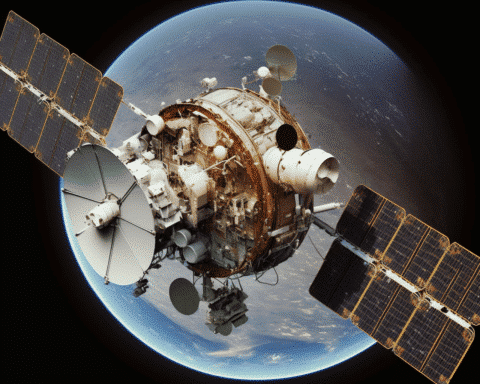In response to China’s growing military presence, Australia is set to increase defence spending, produce its munitions, and develop long-range strike capabilities, as outlined in a government-commissioned report released Monday. Previously, Australia announced plans for a nuclear-powered submarine fleet as part of the AUKUS partnership among Australia, the United States, and Britain.
Prime Minister Anthony Albanese commissioned the review to evaluate Australia’s defence capability, posture, and readiness in the current strategic environment. Albanese endorsed the review’s strategic direction and critical findings, highlighting its significance as Australia’s most comprehensive defence assessment since World War II.
The public version of the classified review advises the Australian government to increase defence spending beyond the current 2% of GDP, enhance the Australian Defense Force’s long-range precision strike capabilities, and domestically manufacture munitions. Other recommendations include bolstering Australia’s northern bases, deepening defence partnerships with Indo-Pacific countries such as India and Japan, and adjusting to the changing regional power dynamics.
The review has no transparency and reassurance regarding China’s strategic intent, which states that China’s military expansion is the largest and most ambitious since World War II.
Angus Houston and Stephen Smith, who both served as the Australia Defense Force Chief, wrote the report. It emphasizes the return of major-power strategic competition and the need for Australia to rethink its approach to defence.
A total of AUD 7.8 billion ($5.2 billion) in defence spending will be redirected or cancelled due to the review. Defense Industry Minister Pat Conroy announced the reduction of an infantry fighting vehicle order and the cancellation of a self-propelled howitzer regiment, with savings directed toward acquiring U.S. HIMARS rocket systems.
Australia’s army will extend the maximum range of its weapons and acquire precision-strike missiles, enhancing firepower and mobility. Chinese Foreign Ministry spokesperson Mao Ning emphasized that China’s military buildup is “defensive in nature” and seeks to maintain global peace and stability, urging other countries not to exaggerate the so-called “China threat narrative.”
The review determines that Australia’s previous defence policy, aimed at deterring low-level threats from more minor regional powers, needs to be revised. It recommends that Australia’s military branches prioritize “timely and relevant capability” over perfect solutions or processes in procurement.
As Australia embarks on a significant defence overhaul, the nation will focus on modernizing and adapting its military capabilities to address the evolving strategic landscape in the Indo-Pacific region. The government will strengthen partnerships with key regional players such as India, Japan, and ASEAN countries to create a more united and resilient front against potential security threats.
The government plans to research and develop cutting-edge technologies, such as artificial intelligence, autonomous systems, and cyber warfare capabilities, to enhance Australia’s defence capabilities further. These advancements are expected to bolster the nation’s ability to effectively detect, deter, and respond to various security challenges.
The Australian government is also set to invest in infrastructure improvements at its northern bases, allowing for more efficient deployment of forces and better logistical support during potential conflicts. This includes upgrading airstrips, port facilities, and communication networks.
In addition to strengthening its defence posture, Australia will seek to expand its diplomatic efforts in the region. This includes deepening cooperation on regional security issues, promoting dialogue and confidence-building measures, and engaging in joint military exercises with partner nations.
As Australia navigates the changing strategic environment, it will continue to work closely with its AUKUS partners, the United States and the United Kingdom, to maintain a coordinated approach in addressing regional security concerns. The Australian government acknowledges the importance of fostering a rules-based international order that upholds all nations’ sovereignty and territorial integrity.
Despite China’s assurances that its military buildup is defensive, Australia remains vigilant and proactive in preparing for any potential security challenges in the region. By undertaking this comprehensive defence overhaul, Australia aims to ensure its military forces are well-equipped, agile, and ready to adapt to an increasingly complex strategic landscape.




